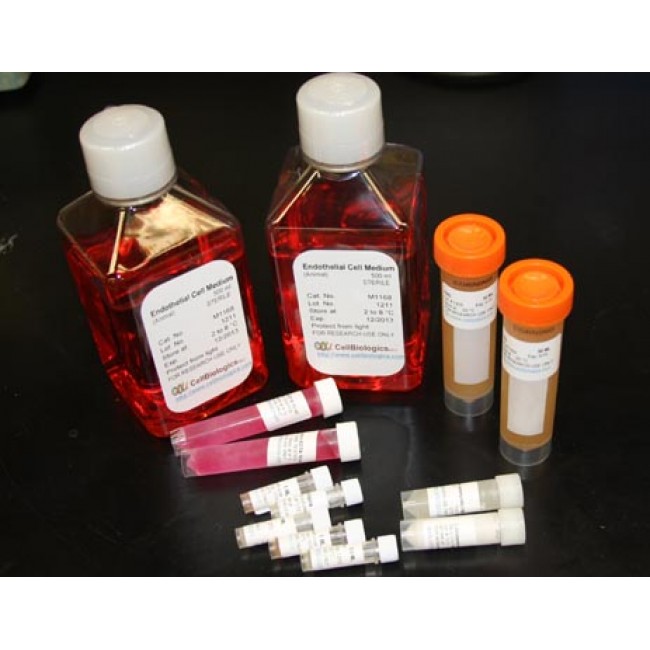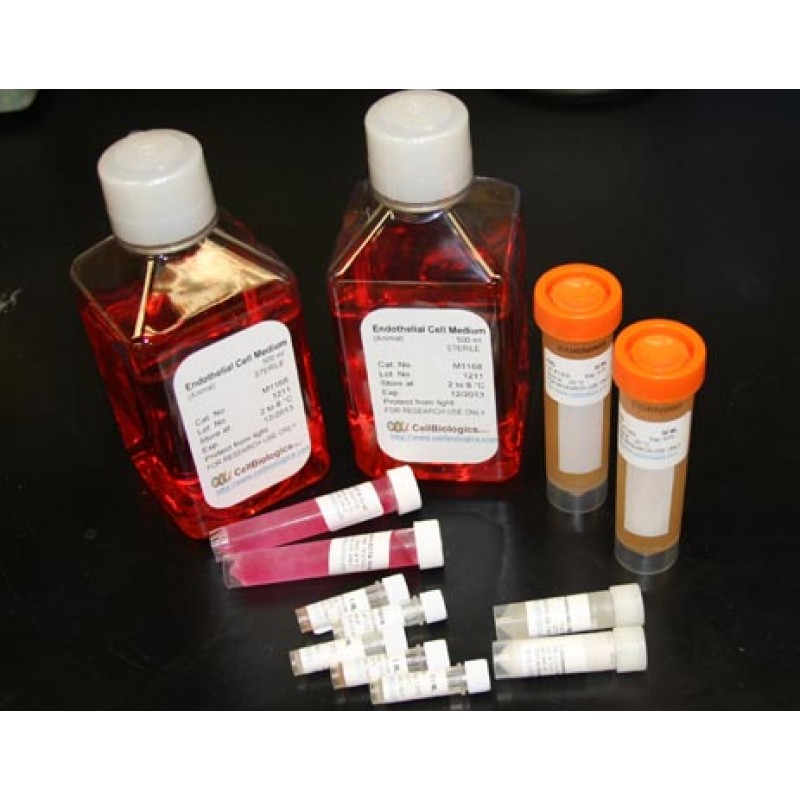BMPs are proteins that act to induce the differentiation of mesenchymal-type cells into chondrocytes and osteoblasts before initiating bone formation. They not only promote the differentiation of cartilage-forming cells and bone-forming cells near sites of fractures but also at ectopic locations. Some BMPs act directly on osteoblasts and promote their maturation while at the same time suppressing myogenous differentiation. Other BMPs promote the conversion of typical fibroblasts into chondrocytes and are capable also of inducing the expression of an osteoblast phenotype in non-osteogenic cell types. Intracellular signalling following engagement of receptors for some BMP proteins has been shown to involve the action of SMAD proteins. BMP4 and BMP7 are also known to be involved in the differentiation of sympathetic neurons. With
an apparent molecular mass of 34 kDa, BMP4 is a disulfide linked homodimeric glycoprotein that is expressed majorly in the lungs but also found in the kidneys, normal and neoplastic prostate tissues, and prostate cancer cell lines.


